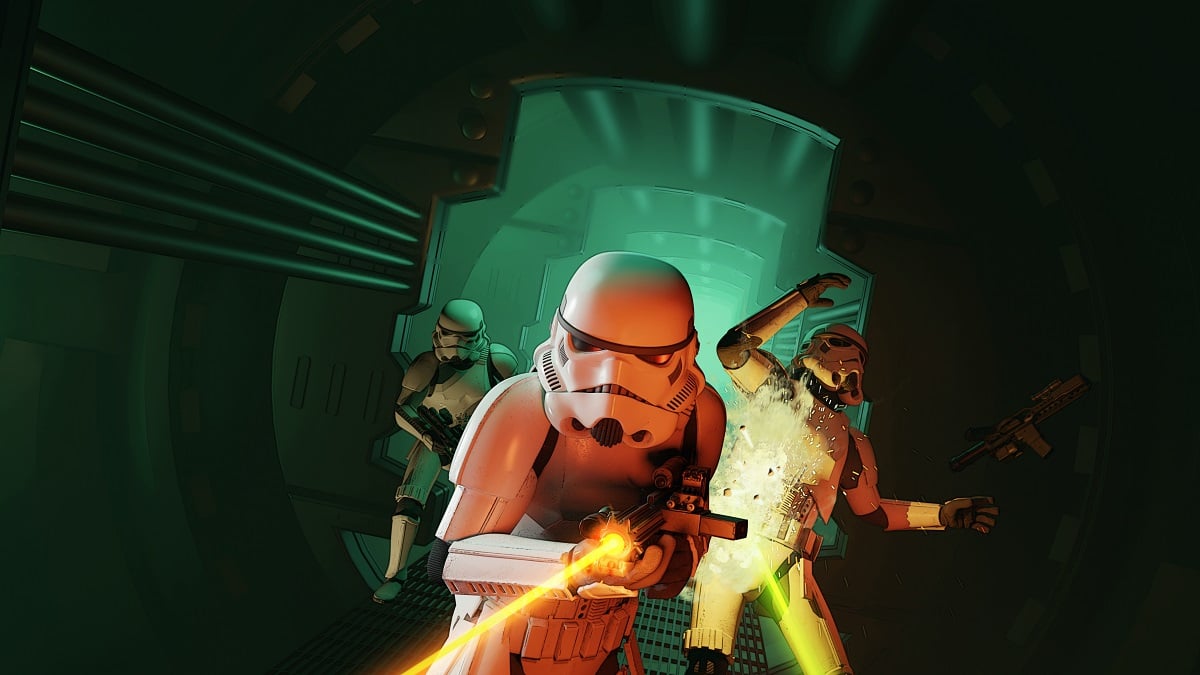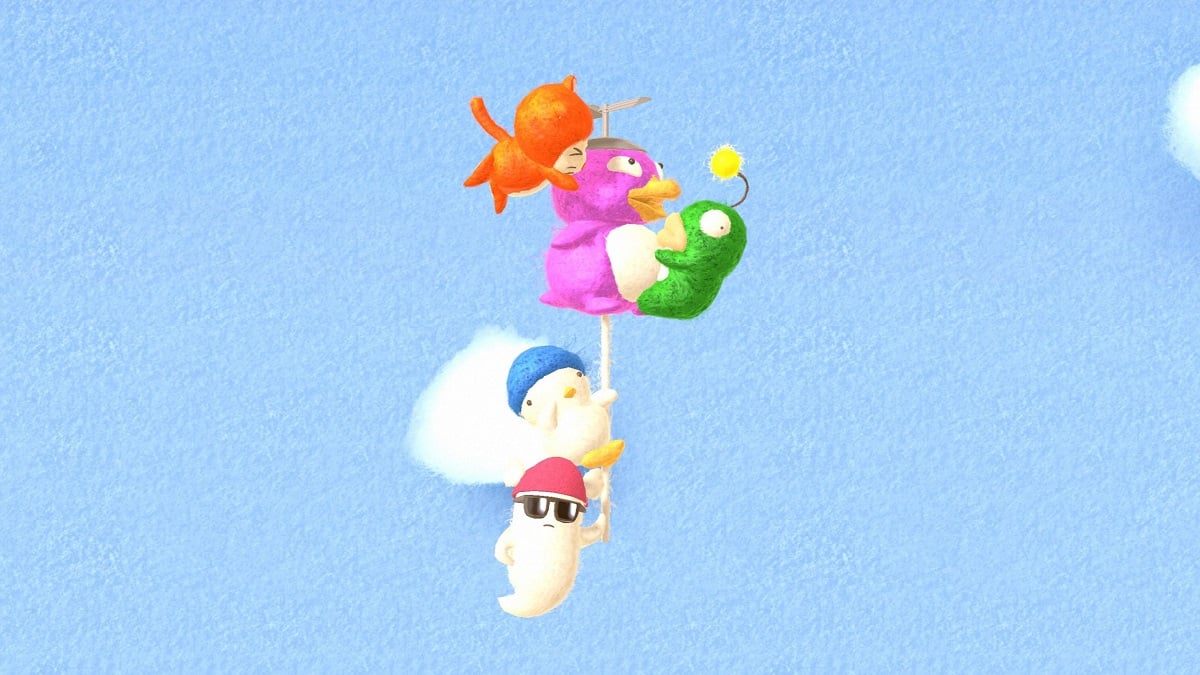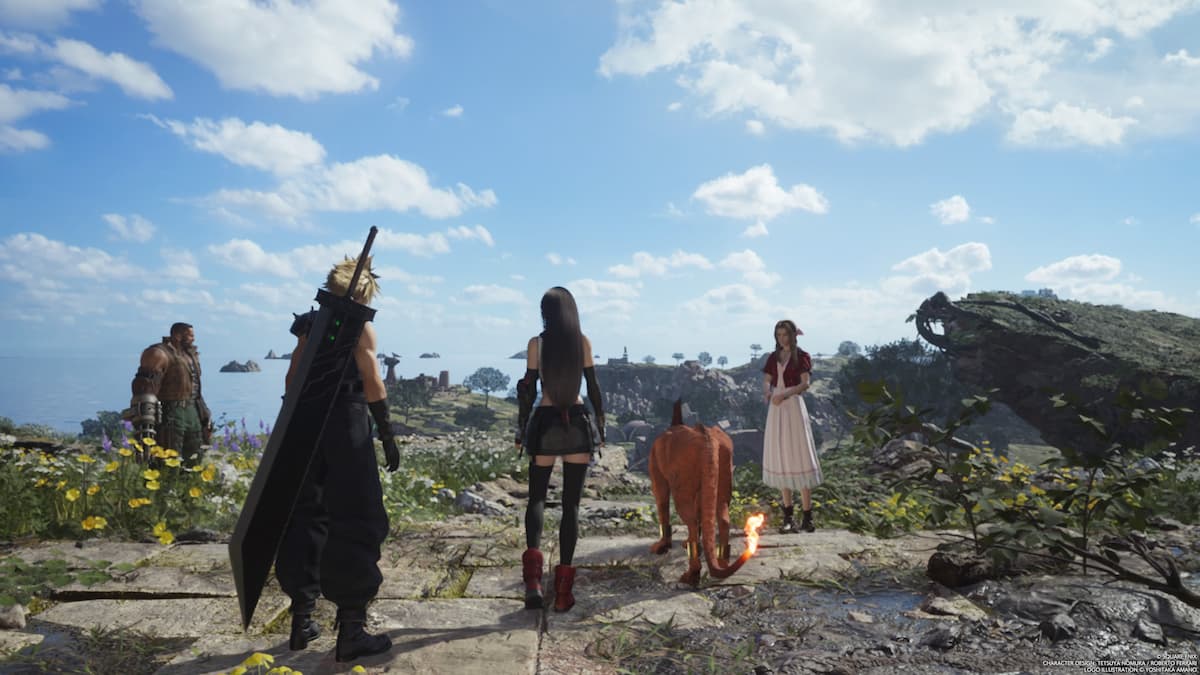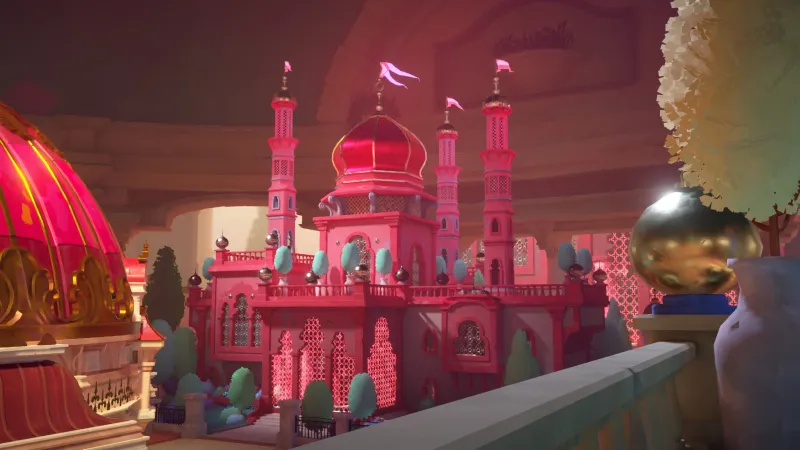
A good puzzle involves a delicate balance. The perfect brainteaser should leave players confused just long enough to feel clever once they reach a “eureka” moment, but the solution shouldn’t be so obtuse that players want to throw up their hands in frustration. Maquette fails to strike that balance. This gorgeous indie game explores the heady concept of recursive worlds while it tells a touching love story, but its puzzle design wavers too far between excitement and tedium.
Maquette is a thoughtful meditation on worlds within worlds. Many of the early puzzles revolve around a maquette model, which resembles your environment. Whenever you manipulate objects inside the model, your actions also affect your surroundings. If you place a normal-sized key into the model, a giant-sized version will drop into view at the corresponding location in your environment. Using this mechanic, you can create ramps or bridges using everyday objects, or shrink larger items so they can slide through the cracks in a fence. I loved how Maquette challenged me to carefully explore my environment and think about how objects can be used in multiple ways.
Click image thumbnails to view larger version
Throughout this journey, you’re treated to a somber love story about a young couple’s struggles to understand and live with each other. This story is told primarily through voiceover (you never actually see the characters), but they are well-performed, and listening to this couple’s cutesy banter regularly brought a smile to my face. Given the heady nature of the gameplay, Maquette’s narrative is surprisingly down to earth, but the characters and their struggles were so relatable that I sympathized with their plight.
Unfortunately, the road to Maquette’s conclusion is bumpy. As much as I liked Maquette’s recursive world design, it offers a few uncomfortable player moments. Just as the model in front of you is a facsimile of your environment, your environment is also a model of the larger biomes that extend onto the horizon. Late in the game, you begin to explore those large spaces, which means you much walk across a variety of big, open areas. I loved the chilling vastness of these spaces, but solving some of these puzzles requires trial and error, which means you have to do a lot of walking. This quickly grows tedious, and I hated reaching my destination only to realize that I needed to adjust the model in the center of the world, which required a long march back.
Click here to watch embedded media
In addition to Maquette’s tedious navigation, a handful of puzzle solutions are so obscure that I had to scour the environment many times before accidentally stumbling into an interactive element. I actually solved a couple of puzzles in ways that I don’t think the designers intended, and reaching these solutions didn’t make me feel clever; it just felt like I had jury-rigged my way forward. One time I even worked myself into a corner; by the time I had calculated the puzzle’s solution, it was clear that I could no longer achieve it. At that point, I was forced to reset the chapter, losing about 30 minutes of progress.
When Maquette is firing on all cylinders, it is a beautiful journey through a series of ever-larger environments, and Maquette’s love story is poignant and a little heartbreaking. Sadly, my interactions with the puzzles were also full of heartbreak. While Maquette has some missteps, I look back fondly on my time with it. Much like a real-life romance, my affection for this game is complicated. — Ben Reeves
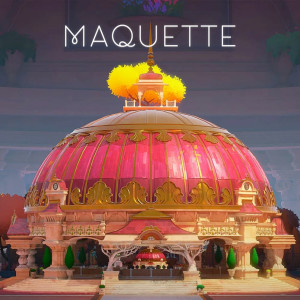
Score: 7.75
Summary: Explore recursive worlds within worlds. Change one thing in a model in front of you to affect the space around you.
Concept: Explore recursive worlds within worlds. Change one thing in a model in front of you to affect the space around you
Graphics: Maquette’s environments aren’t highly detailed, but the visuals are vibrant and colorful
Sound: Bryce Dallas Howard and Seth Gabel do a stellar job with the voice work, and a scattering of indie-rock ballads set a contemplative mood
Playability: The world is easy to navigate, but interactive elements are sometimes hard to spot
Entertainment: Many of Maquette’s puzzles offer a satisfying challenge, but some require abstract thinking to the point of frustration. The lengthy backtracking also gets old
Replay: Moderately Low

